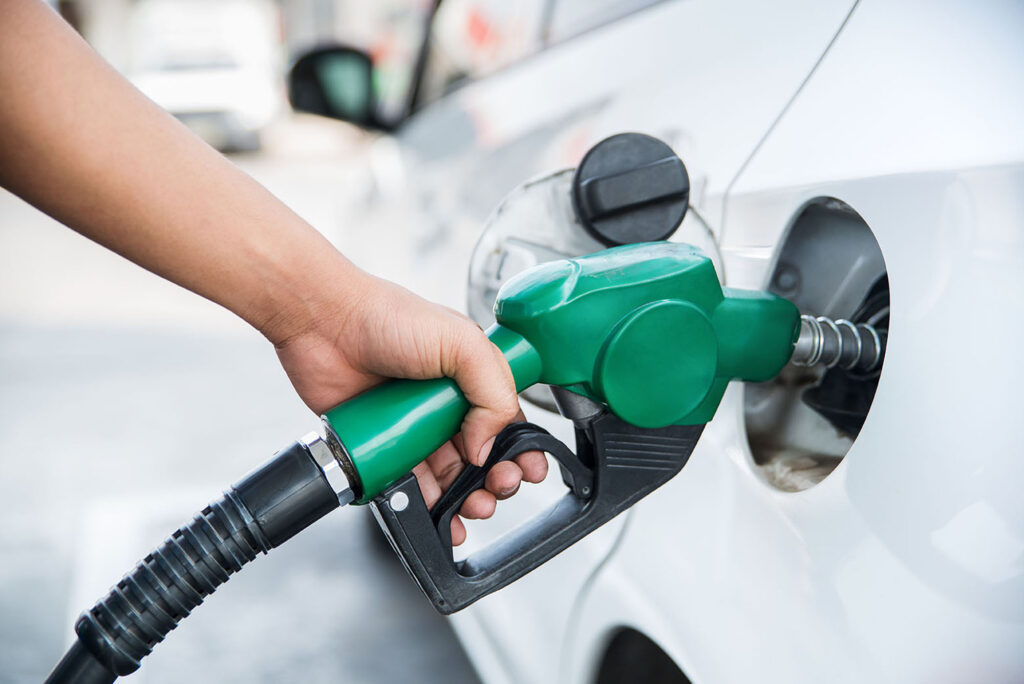
The Nigerian National Petroleum Company Limited (NNPCL) and fuel marketers, represented by the Independent Petroleum Marketers Association of Nigeria, engaged in another confrontation on Tuesday regarding the elimination of the subsidy on petrol.
This clash unfolded amid the devaluation of the naira against the United States dollar in both the official Investors & Exporters Window and the parallel market. The official market recorded a closing rate of 998/dollar, while the black market saw a trading rate of 1,225/dollar on Tuesday.
As the naira continued to depreciate, economists and oil marketers argued that the subsidy on Premium Motor Spirit (PMS or petrol) was escalating.
In contrast, the NNPC countered these assertions, claiming that it was fully recovering its importation costs for petrol.
Disputing the statements made by Bismarck Rewane, the Chief Executive Officer of the Financial Derivatives Company, who suggested a reduction rather than removal of the fuel subsidy, the NNPC insisted that subsidy removal had been implemented.
Oil marketers contended that the subsidy on petrol was on the rise, given the naira’s decline and the cost of crude oil.
They argued that in a free market, PMS should be priced at N1,200/litre. Currently, the NNPCL, as the sole importer of petrol into Nigeria, sells the product at prices ranging from N617/litre to N660/litre, depending on the location of purchase.
Dr. Muda Yusuf, the Chief Executive Officer of the Centre for the Promotion of Private Enterprise, acknowledged partial subsidy on petrol.
He emphasized that the government subsidized the commodity for political, social, and economic reasons. However, the Chief Corporate Communications Officer of the NNPCL, Olufemi Soneye, dismissed the positions of economists and marketers as assumptions, maintaining that the Federal Government had indeed discontinued petrol subsidy.
Bola Tinubu had officially announced the end of petrol subsidy during his inaugural speech on May 29, 2023. Following this declaration, the pump price of petrol, previously below N190/litre, surged to over N500/litre and later surpassed N600/litre a few weeks later.
When questioned about the alleged subsidy by dealers and experts, the NNPCL’s CCCO said, “We prioritise our time on substantive matters rather than responding to assumptions.
“At NNPC Ltd, we prioritise national development through energy security and sustainable growth. We reiterate that the Nigerian government does not pay subsidy on fuel; we recover full costs from our imported products.
“As a global energy company, our focus remains on fostering a vibrant and energy-secure Nigeria.”
During a live television program on Sunday evening, Rewane clarified that the subsidy on petrol had been decreased but not completely eliminated.
READ ALSO: Tinubu Reappoints Mele Kyari as CEO, New Management Team for NNPCL
He went on to emphasize the repercussions of the reduced fuel subsidy and its impact on salaried individuals in Nigeria.
He said, “At the inauguration, it was said that (fuel) subsidy was gone but subsidy was actually reduced.”
Emphasizing his position, he explained, “There is the convergence of exchange rates and reducing the windows into one. The consequence of that is that money has been transferred from consumers to the government.
“Subsidies are reversed taxes; if you reduce them, you increase the people’s taxes and reduce their income. What has happened is that government revenue has increased by 44 percent between May and June (2023). Money has been transferred to the government but what is the government doing with it?
“The consumers, on the other hand, had a minimum wage, which in dollar terms was $40 in 2002. In 2019, it was about $70, but it has now been reduced to $24.”
Chief Ukadike Chinedu, the National Public Relations Officer of the Independent Petroleum Marketers Association of Nigeria, asserted that the subsidy on petrol was increasing. He emphasized that the appropriate cost of the commodity in a free market should be approximately N1,200 per litre.
“To be pragmatic in this analysis let’s consider the cost of petrol today in the United States. For premium petrol, it is $2.99, while super petrol sells for $3.15 or $3.10 depending on the part of that country where you are making the purchase.
“Now, $3 in Nigeria is over N3,000, because a dollar in the parallel market is over N1,000. You can also see the cost of diesel, that is over N1,000/litre, and it is important to state that petrol is usually higher in price than diesel in a free market.
READ ALSO: For Umpteenth Time, Confused FG Deceives Nigerians Over Completion of P/Harcourt Refinery
“So if you consider the cost of diesel, dollar and other international factors, the price of petrol in Nigeria should be around N1,200/litre, but the government is subsidising it, which to an extent is understandable,” he stated.
Ukadike pointed out that he had previously clarified that the government was employing a quasi-subsidy approach.
In essence, this entails the Federal Government opting to remove approximately 50 percent of the subsidy instead of entirely eliminating it.
Nevertheless, the IPMAN representative remained hopeful, asserting once more that the prices of refined petroleum products would decrease once the Port Harcourt and Dangote refineries commence production.
“I also believe that there will be a reduction in the prices of petroleum products this year when you consider what the government is currently doing. The coming onboard of the Port Harcourt refinery and the supply of crude to Dangote refinery are good developments in the sector.
“Their operations will help stabilise the price of PMS and other petroleum products in Nigeria, because it will definitely cut down the importation of products,” Ukadike stated.
The CEO of the Centre for the Promotion of Private Enterprise stated that the partial retention of subsidies is attributed to its economic, social, and political implications.
Yusuf said, “To protect the citizens from further hardship is the reason why the government seems to have applied the brakes on subsidy removal. We are all witnesses to the pain and hardship that citizens are going through.
READ ALSO: Why Tinubu’s Appointment As Petroleum Minister Is Illegal — Falana
“So when you are adopting some of these policies, especially these liberal economic policies, it comes to a point where you have to moderate your position for social reasons.
“Just as the World Bank said, if we want to leave the price fully to market forces and the liberal economic policies, the fuel price will be above N800/litre. Can any government that is sensitive to the feelings of its citizens allow that to happen?
“Even if economically that is the way to go, there must always be a human face to economics. So what the government has done is to moderate the reform, and that is why I think the government has insisted that the NNPC should still hold the price at the current level.”
Yusuf observed that it is crucial for the government to weigh the benefits and potential drawbacks of subsidies. He emphasized that the elimination of subsidies entirely could exacerbate economic hardships.
“All of us who were saying that they should remove the subsidy, we can see that they have partially removed it now, but look at the consequences. Economically it will sound good, but socially and politically it is very costly.
“So those in government need to balance all those considerations. They need to balance economic, political and social considerations. That is why we find ourselves in a situation where we have partial subsidies, both in petrol and electricity,” he stated.
In December, the World Bank emphasized that the Federal Government continued to implement a subsidy on petrol. The organization maintained that without the subsidy, the cost of Premium Motor Spirit (PMS) should not be below N750/litre.
The first day of official trading on the Investors and Exporters Window saw the naira conclude at N988.46/$, marking an 8.97% decrease from its Friday closing rate of N907.11/$ at the end of official trading for 2023, as reported by FMDQ Securities Exchange data.
This decline continues a troubling trend for the naira, which ranked among the poorest-performing currencies in 2023.
Bloomberg highlights that 2023 was one of the worst years for the naira, a dubious title that might persist into 2024. The national currency experienced a substantial 55% depreciation in value as of Thursday, December 28, 2023.
READ ALSO: Powerful Nigerians Involved in Illegal Mining, Funding Banditry, Terrorism —Alake
According to Kyle Chapman, an FX markets analyst at Ballinger & Co in London, the naira secured its position as the third worst-performing global currency in 2023.
This unfortunate standing can be attributed to issues such as a backlog of unsettled forwards, unfulfilled commitments of dollar inflows, and a two-decade high in inflation.
Chapman said, “The naira’s downward momentum is likely to continue through much of 2024, and its ultimate trajectory will depend on whether the CBN’s rhetoric transforms into concrete policy moves that drive up the flow of US dollars into Nigeria and shore up trust in the official market.
“If the CBN’s promised measures materialise and Tinubu’s government enacts structural changes to increase oil production or to drive foreign investment, there is plenty of opportunity for the naira to lift from its record lows. But a quick fix is unlikely, and further depreciation will come to counteract supply and demand imbalances.”
In the December Nigeria Development Update, the World Bank highlighted a 41% depreciation of the naira against the US dollar in the official market and a 30% depreciation in the parallel market.
The report emphasized the necessity for a higher volume of the naira to achieve stability in the official market.
It said, “Further monetary policy tightening is expected to help underpin the value of the naira. However, there is also a need to increase FX supply in the market. Facilitating FX flows, especially from all exports, through the NAFEM can help provide additional volumes in the official window that can help provide stability.
“In addition, clarity on the CBN’s net reserve position, and on the CBN’s continued progress in clearing the FX backlog, would also strengthen market confidence.”
On Tuesday, the Nigerian National Petroleum Company Limited reported a total of 112 cases of crude oil theft within the Niger Delta over the span of a week, from December 23, 2023, to December 29, 2023. During this period, 42 illegal refineries were identified across various locations in the oil-rich region.
The documented incidents took place in Konsho and Tebidaba in Bayelsa State, Obokofia in Imo State, as well as Ogidigben, Mereje, and Obodo Omadina in Delta State. The oil company shared this information in an official documentary posted on its X handle, revealing that illegal refineries in Umuire, Abia State, and Upata in Rivers State were also located and dismantled.
Furthermore, the documentary highlighted the discovery of 14 illegal connections in different parts of the Niger Delta. Notably, a tunnel concealing an illegal connection was found in Owaza, Abia State. Additionally, the company identified 10 cases of vandalism during the week.
The two minutes and 44 seconds documentary also disclosed the uncovering of illegal storage sites in Ebocha and Ton Kiri in Rivers State, where oil pits were detected.
READ ALSO: Disclose Nigeria’s Daily Oil Production and Export Figures Within 7 Days – SERAP Threatens NNPC
“In Ogbia, Bayelsa State, sacks of crude oil were discovered. More illegal storage sites were uncovered in Urhonigbe, in Edo State; Ekuku-Agbor and Bomadi in Delta State.”
The company reported the detection of 22 wooden boats transporting stolen crude in Okrika and Tombia, Rivers State, as well as Emereje, Delta State.
The report also highlighted that 11 vehicle arrests were carried out during an operation in Delta State, with eight incidents of oil theft occurring in deep waters, 46 in the eastern region, 32 in the central region, and 26 in the western region.
Nigeria suffers significant financial losses due to oil theft, making it challenging to adhere to the production quota sanctioned for the country by the Organization of Petroleum Exporting Countries. The persistent threat posed by oil thieves hampers Nigeria’s ability to meet the approved production levels.
“Between the 23rd and 26th of December, 2023, 18 suspects were arrested,” the national oil company stated, adding that it would not back down in the war against crude oil theft.
(PUNCH)


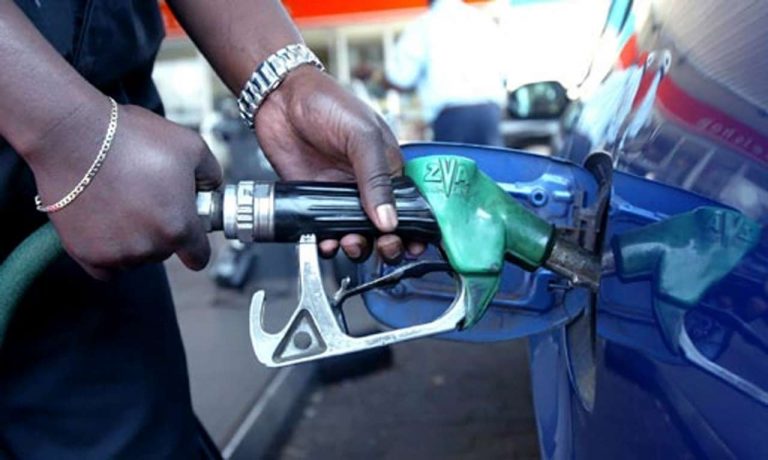
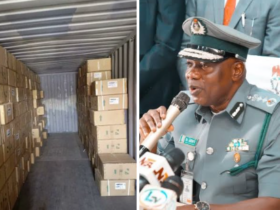

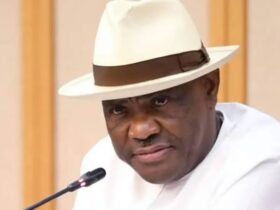
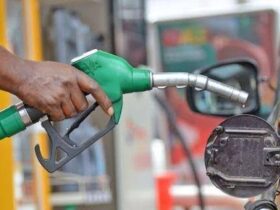
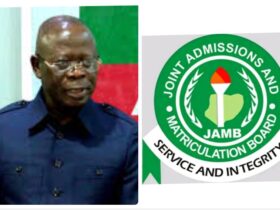
Leave a Reply